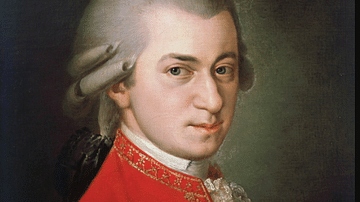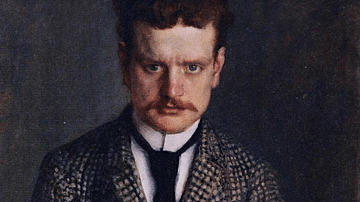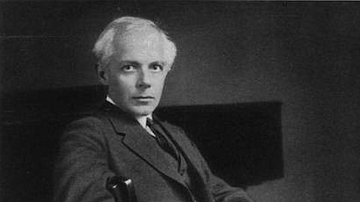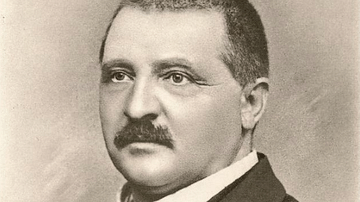Search
Search Results

Definition
Igor Stravinsky
Igor Stravinsky (1882-1971) was a Russian composer best known for his works for the stage, such as the ballets The Firebird, Petrushka, and the groundbreaking The Rite of Spring. The modernist composer lived in Switzerland, France, and then...

Definition
Wolfgang Amadeus Mozart
Wolfgang Amadeus Mozart (1756-1791) was an Austrian composer who wrote a wide range of works including piano concertos, string quartets, symphonies, operas, and sacred music. Regarded as one of or perhaps the greatest natural musical talent...

Definition
Jean Sibelius
Jean Sibelius (1865-1957) was a Finnish composer famous for his symphonies, the symphonic poem Finlandia, and the Karelia Suite. Although Sibelius inspired a music revival in his native country, became a figurehead for the Finnish nationalist...

Definition
Joseph Haydn
Joseph Haydn (1732-1809) was an Austrian composer of Classical music who is widely regarded as one of the greatest composers in history. Haydn spent most of his career around Vienna, where he pioneered the symphony and string quartet format...

Definition
Pyotr Ilyich Tchaikovsky
Pyotr Ilyich Tchaikovsky (1840-1893) was a Russian composer most famous for his symphonies, the ballets Swan Lake, The Sleeping Beauty, and The Nutcracker, and the operas Eugene Onegin and The Queen of Spades. A composer of innovative and...

Definition
Gustav Mahler
Gustav Mahler (1860-1911) was an Austrian-Bohemian composer best known for his song-cycles and his grand, sweeping symphonies, which often require expanded orchestras for their full performance. Mahler, a composer of Late-Romantic music and...

Definition
Béla Bartók
Béla Bartók (1881-1945) was an innovative Hungarian pianist and composer most famous for his classical works for piano and orchestra, string quartets, and songs, many of which present traditional Hungarian and other European folk themes...

Definition
Antonín Dvořák
Antonín Dvořák (1841-1904) was a Czech composer best known for his symphonies, symphonic poems, operas, and chamber music. Dvořák's best-loved works include his 9th Symphony (From The New World), the American quartet, and his Slavonic Dances...

Definition
Anton Bruckner
Anton Bruckner (1824-1896) was an Austrian composer, most famous for his nine grand symphonies and his church music. Never quite gaining full recognition for his work until he was in his sixties, Bruckner's music, with its strong spiritual...

Definition
Tezcatlipoca - The Greatest of Aztec Gods
Tezcatlipoca (pron. Tez-ca-tli-po-ca) or 'Smoking Mirror' in Nahuatl was one of the most important gods in Postclassical Mesoamerican culture and particularly important for the Toltecs and the Aztecs, especially at Texcoco. He was an invisible...